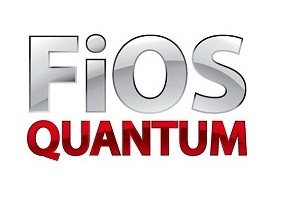Verizon Told Stop Claiming Cable Broadband Is Slow
The smarter way to stay on top of the multichannel video marketplace. Sign up below.
You are now subscribed
Your newsletter sign-up was successful

Verizon Communications should modify marketing claims to avoid conveying “the falsely disparaging” notion that cable broadband services are significantly slower than FiOS Internet, according to an industry advertising group acting on a complaint from Comcast.
The Council of Better Business Bureaus' National Advertising Division, in a decision Tuesday, recommended that Verizon alter certain TV ads claiming that FiOS is faster than cable Internet service because cable is a shared connection. The group also recommended that the telco’s “consistently fast” claims for DSL be discontinued or modified to reflect that the speeds are simply “fast.”
However, NAD said, Verizon can adequately support its claims that the telco provides “America’s fastest, most consistent and most reliable Internet.”
NAD evaluated Verizon’s claims of superior performance for FiOS and DSL Internet services. Those claims included that with FiOS, the connection “doesn’t slow down when everyone else is online” and that DSL customers get a “dedicated connection at a great price” and “consistently fast” speeds.
Verizon, in a statement, said the company “will take NAD’s recommendations into consideration in future advertising.”
A Comcast spokesman declined to comment on the NAD decision, but added that the MSO remains “focused on delivering more speed to more homes than any other ISP in the nation.”
It’s the latest episode in years of feuding over marketing claims between Verizon and MSOs.
The smarter way to stay on top of the multichannel video marketplace. Sign up below.
In June -- following a complaint by Verizon -- the NAD ruled that Comcast should stop making the unqualified claim that its Xfinity Internet service is the "fastest in the nation." However, NAD found that Comcast would be able to back up a claim that it is one of the three fastest ISPs in the nation, according to a 2011 PC Magazine study, or claim that it is the fastest Internet option for most consumers in its service areas where Verizon's FiOS service is not available.
Also in June, Verizon launched FiOS Quantum, with a top speed of 300 Mbps in many markets, while hiking pricing and connection speeds for most existing customers. The FiOS 300-Meg service, which provides 65 Mbps upstream, is available only on a standalone basis for $209.99 monthly with no contract or $204.99 with a two-year contract.
Comcast countered the launch of FiOS Quantum with a 305-Mbps downstream service (and uploads of up to 65 Mbps), priced at $299.95 per month as a standalone service.
The Verizon TV spots that Comcast objected to relied on a Federal Communications Commission report showing that FiOS provided the greatest percentage of sustained download speeds during peak periods.
The NAD noted that according to the FCC report, FiOS speeds didn’t degrade at any time while competing cable services, particularly at peak hours, experienced a slowdown to varying degrees.
But Verizon cannot support the implication that cable is slow at peak hours “simply because its bandwidth is shared with potentially hundreds of homes,” the NAD said. One of the telco’s TV ads featured a neighbor lamenting about needing to “borrow Internet” to be able to download and upload files.
Meanwhile, Verizon’s claim that FiOS “is not shared with the neighborhood” should be discontinued, NAD said, because consumers “may reasonably interpret ‘neighborhood’ to include 32 homes,” which is the maximum number of subscribers on a FiOS node.
In a statement Verizon said, “We’re gratified that the NAD found our claim that FiOS is ‘America’s fastest, most consistent and most reliable Internet’ to be truthful and reasonably substantiated.”
In addition, Verizon said, it is “delighted that NAD has recognized that Verizon can truthfully state that cable is shared with ‘hundreds of homes’ versus no more than 32 users with FiOS. Further, Verizon appreciates NAD’s acknowledgment that FiOS is the only Internet service that has a ‘100% fiber-optic network’ and that where FiOS is available, it is the fastest Internet service."
Regarding the DSL marketing claims, “Verizon respectfully disagrees with NAD’s recommendations,” the telco said. “These claims are fully substantiated by FCC data proving that Verizon DSL customers consistently get 100% of the fast speeds advertised, even during peak hours.”
NAD, whose decisions are not legally binding, is an investigative arm of the Council of Better Business Bureaus.
